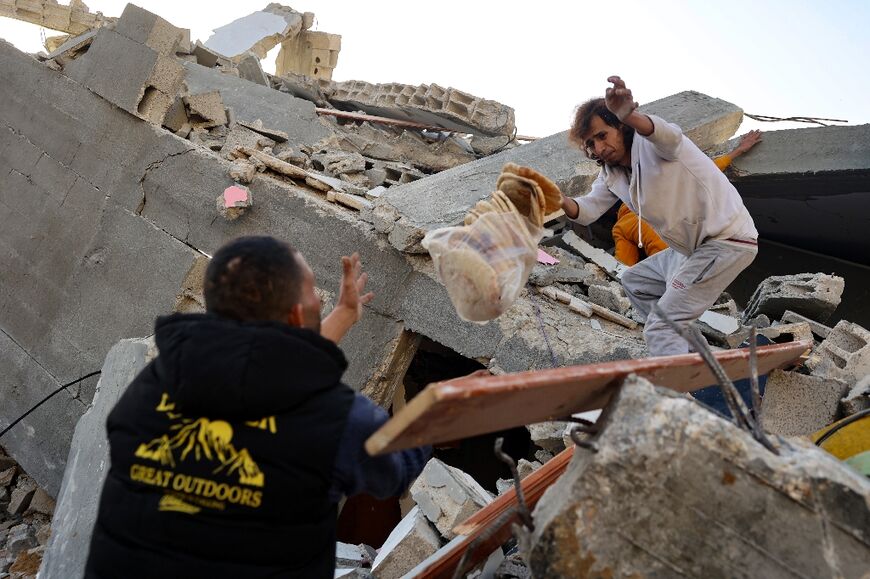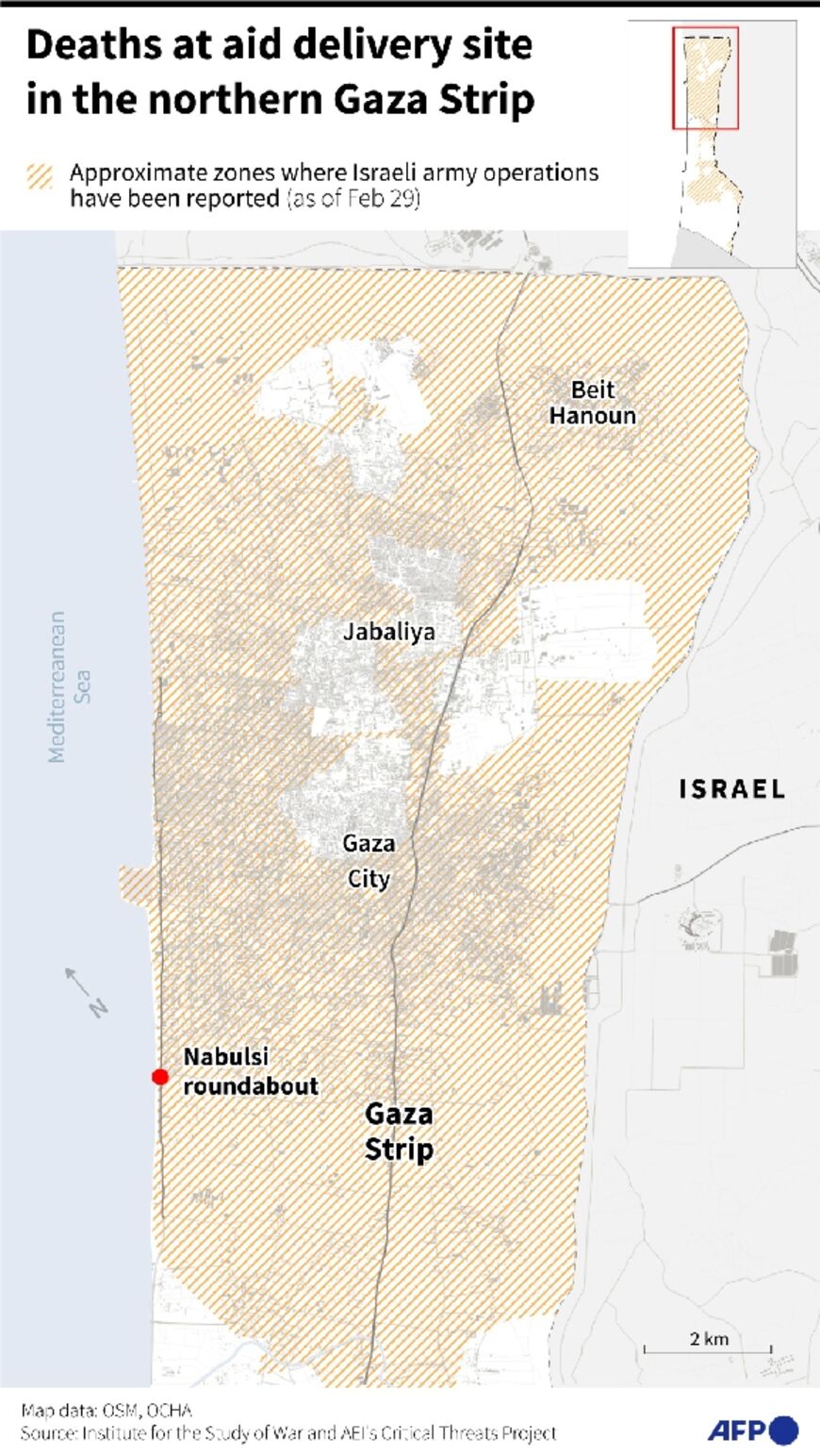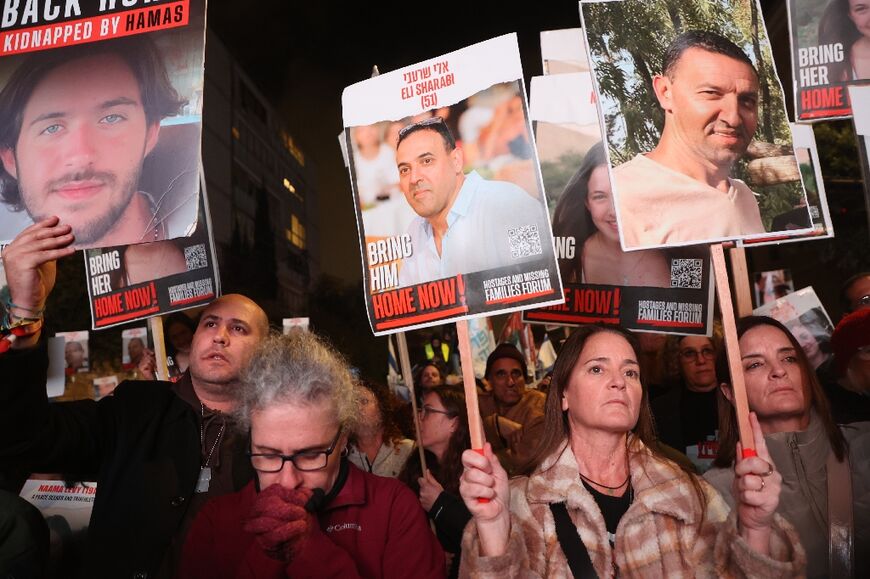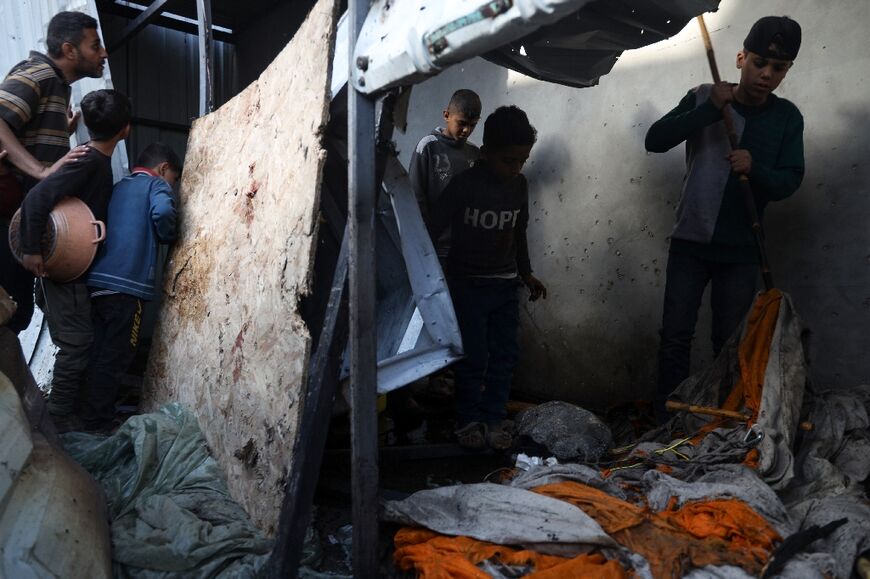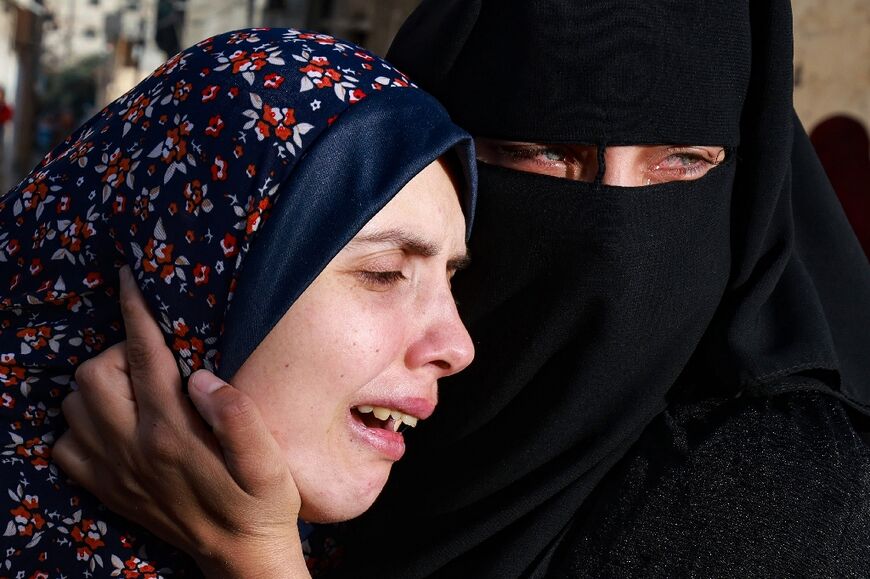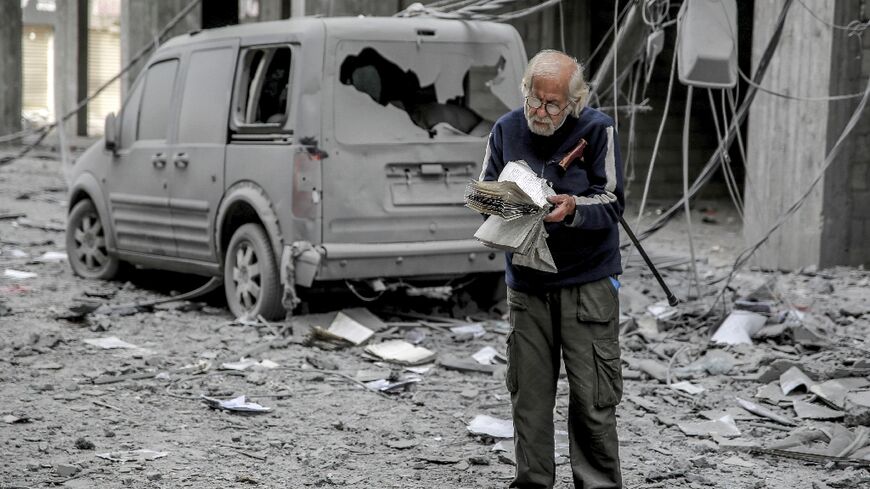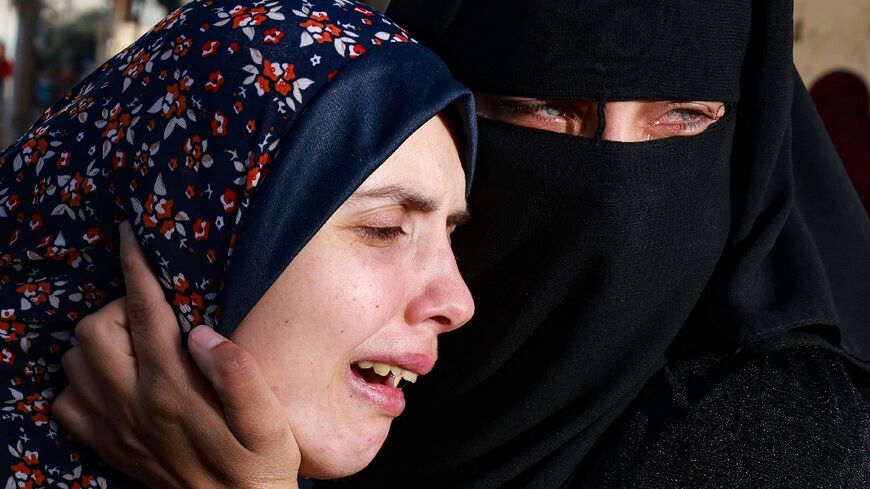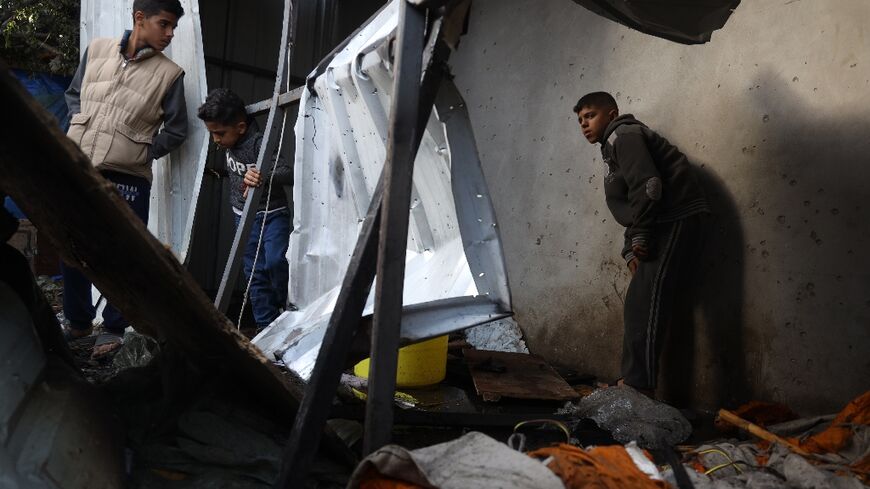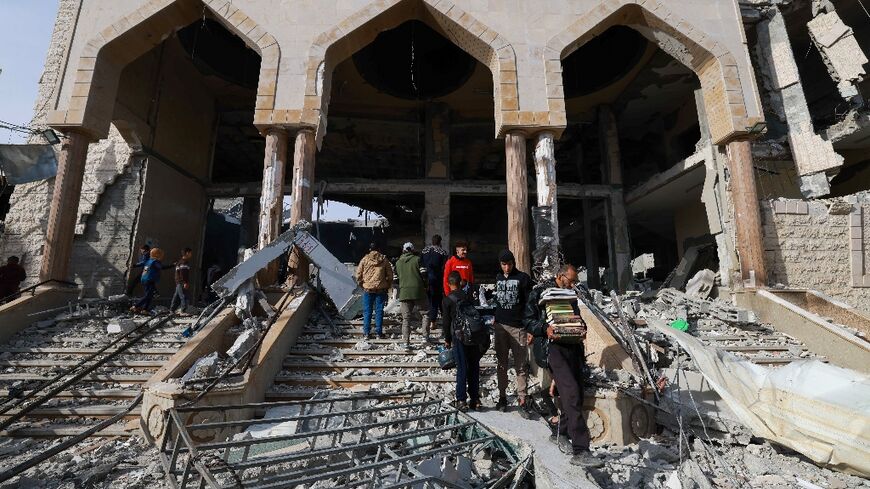Gaza truce talks in Cairo as heavy fighting rages
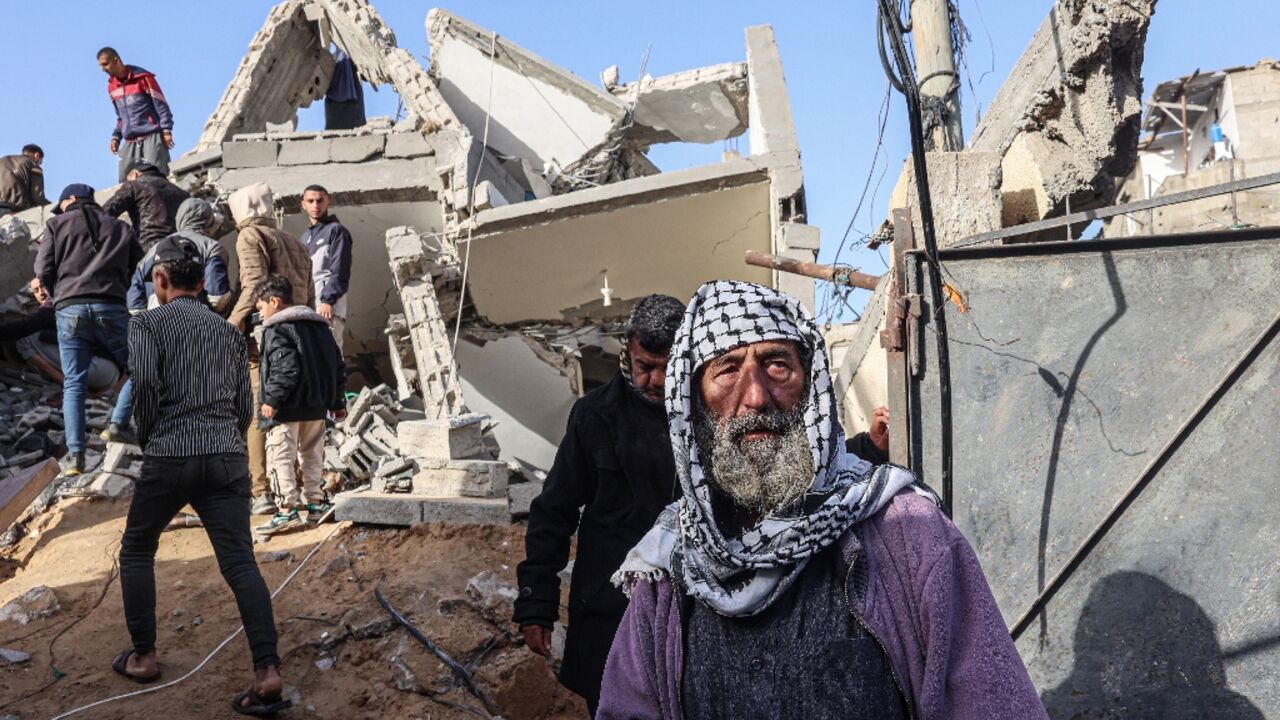
Egypt on Sunday hosted envoys for talks on a ceasefire between Israel and Hamas, the latest diplomatic effort as Gaza officials reported more deadly bombardment in the nearly five-month-old war.
A senior Hamas official told AFP that a delegation from the Palestinian group would discuss with mediators a proposal for a six-week truce, after a US official said Israel had broadly accepted its terms.
Envoys from the United States, Qatar and Hamas have arrived in Cairo, Egyptian state-linked media reported, as all sides have been scrambling to lock in a truce before Ramadan, the Muslim fasting month that begins on March 10 or 11.
The Hamas official said that if Israel were to meet its demands -- which have included a military withdrawal from Gaza and stepped-up humanitarian aid -- this would "pave the way for an agreement within the next 24-48 hours".
The health ministry in the Hamas-ruled Gaza Strip said at least 90 Palestinians had been killed in the past 24 hours, including 14 family members whose house in the southern Rafah refugee camp had been hit.
Two of them, twin babies Naeem and Wissam Abu Anza, were buried on Sunday, an AFP photographer said, as their mother Rania was crying in agony.
Relative Shehda Abu Anza said there were "only civilians" at the family home.
"All of them were sleeping when suddenly a missile hit and destroyed the whole house," he told AFP while family members and other residents searched the rubble with their bare hands for bodies and also to salvage food.
In a sign of the worsening humanitarian crisis in the narrow coastal territory, ministry spokesman Ashraf al-Qudra said at least 16 children had died of malnutrition in recent days as "famine spreads" in the north.
- 'Acute food insecurity' -
As Gaza faces dwindling deliveries of relief supplies across its land borders, Israel's top ally the United States carried out a first airdrop, joining several Arab and European government that have parachuted in aid since November.
But officials and aid groups have said such operations are limited in scope and cannot replace overland aid access.
The Hamas official said the group would demand "the entry of at least 400 to 500 trucks per day" carrying food, medicine and fuel as part of a truce deal.
The US official, speaking to reporters late Saturday, said "there's a framework deal" for a ceasefire which could start "today if Hamas agrees to release" elderly, women and ill hostages.
Israel had yet to confirm that it has accepted the truce plan or whether it would attend the Cairo talks.
The United States regards Hamas as a "terrorist" organisation, and in previous talks Egyptian officials have acted as intermediaries.
Osama Hamdan, a Lebanon-based Hamas official, told Qatar's Al-Araby TV that the group insisted on a complete, rather than "temporary", ceasefire and on "ending the aggression against our people".
The UN Security Council voiced concern over "alarming levels of acute food insecurity", highlighted by a desperate rush for aid from a convoy of trucks in Gaza City on Thursday that ended in the deaths of dozens of Palestinians.
In a statement on Saturday, the council stressed "the need to take all necessary measures to protect civilians" and urged "the immediate, rapid, safe, sustained and unhindered delivery of humanitarian assistance at scale".
Pope Francis called Sunday to ensure civilians in Gaza have "safe access to the humanitarian aid they urgently need", telling a crowd of faithful at the Vatican that he supports an "immediate ceasefire" and hostage release.
- 'Warning shots' -
Several foreign leaders have called for an investigation into the aid truck storming, which the Gaza health ministry said resulted in the deaths of 116 people.
The ministry said Israeli forces shot civilians, but the Israeli army insisted most died in a stampede or crush.
Army spokesman Daniel Hagari said on Sunday an initial review "has indicated that following the warning shots fired to disperse the stampede... several looters approached our forces and posed an immediate threat to them".
Troops then fired "towards several individuals", Hagari said.
He added that an "independent" army body would launch an investigation and vowed "transparency".
The aid convoy deaths pushed the war death toll in Gaza to at least 30,410, mostly women and children, the health ministry said Sunday.
The war began on October 7 with an unprecedented Hamas attack on southern Israel that resulted in the deaths of about 1,160 people, mostly civilians, according to an AFP tally of official figures.
Gaza militants also abducted 250 hostages, of whom 130 remain in captivity according to Israel, a figure that includes 31 presumed dead.
Several dozen captives were released in exchange for Palestinians held by Israel during a one-week truce in November.
- 'Now or maybe never' -
An AFP correspondent in southern Gaza, near the border with Egypt, said several air strikes hit Rafah and Khan Yunis during the night.
The Hamas government media office also reported intense tank shelling in northern Gaza.
The Israeli military said its forces had carried out "an extensive series of strikes on terror targets" in Khan Yunis, south Gaza's main city that has become the focus of fighting in recent weeks.
About 50 targets including "underground terrorist infrastructure" and military sites were hit "within six minutes", the army said.
In Israel, Prime Minister Benjamin Netanyahu has faced mounting calls to secure the release of the remaining hostages, and from a resurgent anti-government protest movement.
Rallies were held on Saturday in Tel Aviv and Jerusalem, where a relative of one of the captives said he hoped freeing them was a top priority.
Eyal Kalderon, cousin of hostage Ofer Kalderon, said there may not be "another chance" to bring him home. "It's now or maybe never."
burs-ami/fz


